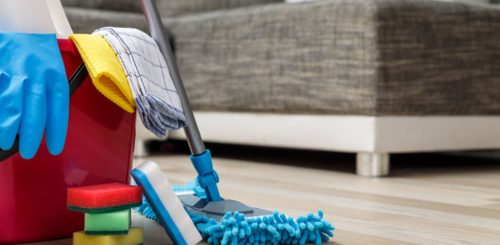If you’re relocating soon, you’re likely gearing up for the challenging task of boxing up your entire home, including small kitchen items, such as silverware – but do you know how to pack silverware properly? How can you make sure your forks, knives, and spoons stay safe during transport? All you have to do is read the following tips, and you’ll be able to pack silverware like a pro.
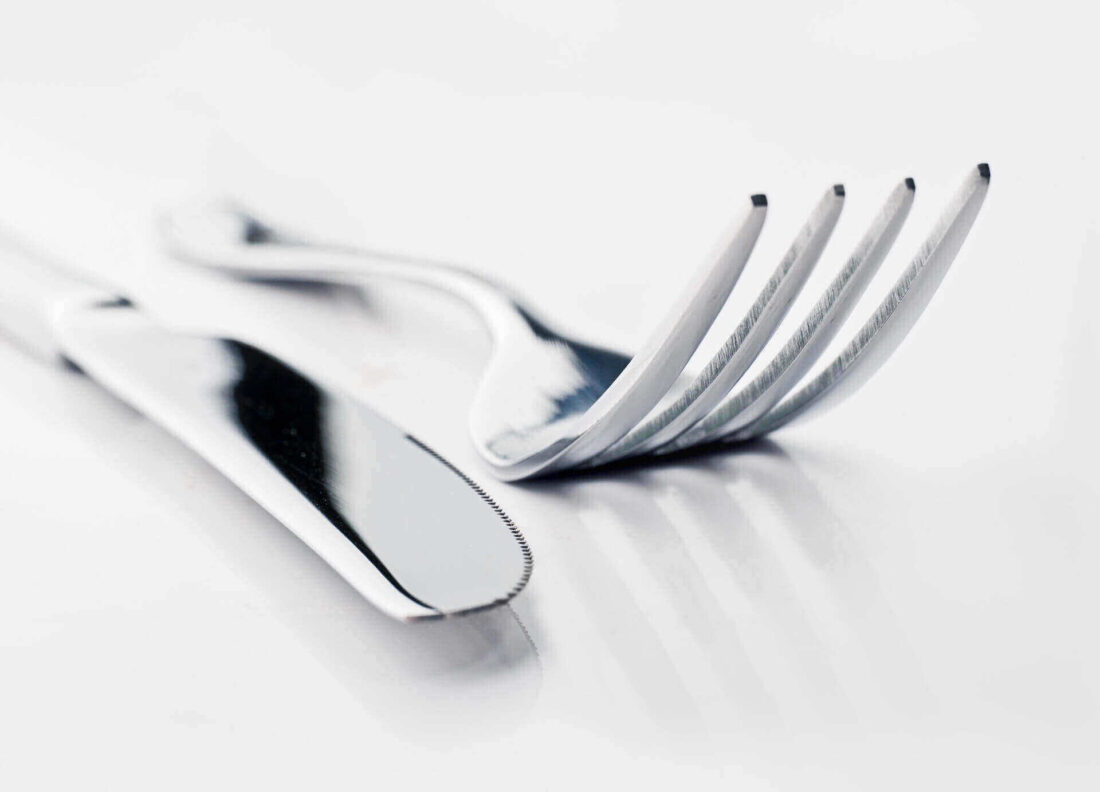

Clean and dry the flatware before boxing it up. Once you start packing, leave the cutlery in the tray or chest if you have those. If your tableware has truly high values, it’s best to pack each piece of tableware individually before grouping them together. At the same time, make sure you use the correct packaging materials, and add enough padding, so the cutlery does not shift during transport. Once the box is sealed, label it to ease the unpacking process and reduce the chances of potential injuries.
The First Step Is to Gather the Right Packing Supplies
If you don’t plan to get packing services and let cross-country movers help you pack efficiently, then you’ll be the one responsible for gathering the supplies. Here is what you’re going to need:
Wrapping material
When it comes to cutlery, the most important packing material you’ll need to get is one meant for wrapping – but should you use bubble wrap or packing paper? Packaging paper should be used for wrapping each individual piece of silverware. The bubble wrap can be used as an extra layer of protection around the wrapped silverware – similarly to the way it’s used for boxing up fragile items. Still, whenever possible, make sure you avoid wrapping your silver with bubble wrap – this material is made of plastic, which traps moisture and contains sulfur, and can lead to tarnishing.
Boxes
You’ll also need the best-sized boxes for packaging cutlery – and those are the small ones. Dimensions of small boxes are around 12 x 12 x 16 inches, and they are commonly used for transporting small but heavy objects, which perfectly fits the silver cutlery.
Additional supplies
Additionally, don’t forget to prepare additional supplies such as quality tape for sealing boxes, markers for labeling boxes, and padding material that will stop your tableware from shifting while being transported to your new home.
Make Sure to Declutter Before You Start Packing
Decluttering is a crucial part of every move to a new state – it’s the best way of saving time and energy on both packing and unpacking. Moreover, getting rid of those items you no longer need or want can be financially beneficial since it’s bound to reduce the cost of your move – so make sure it finds a place in your to-do list.
Before you start decluttering your cutlery, however, it’s important to have a plan. Make a list of all the silver you want to keep when relocating and sort it into categories (have different categories for forks, knives, spoons, and so on). This will help you stay organized and efficient as you declutter and, later on, pack.
Once you know every piece of silver cutlery in your possession, make sure you get rid of duplicates and backups. Chances are, you don’t need four sets of silverware once you move to a new city. If you’re really attached to certain pieces, you can always keep one set and decide what to do with the others. The best option is to leave it to your friends and family if they need these utensils or sell them and make some extra money.
For additional ideas on what else you should declutter besides the cutlery, take a look at the video below:
When Should You Start Packing Fine Cutlery?
Even if you use these utensils for eating every day, know that you don’t need to wait until the relocation day to pack them. Note that you can switch over to plastic utensils long before the actual move comes, which will allow you to pack your cutlery safely and on time. This will provide you with more time for other time-sensitive tasks that you need to complete before relocating cross-country.
How to Pack Silverware for Moving? Packing Silverware in a Tray Is the Easiest Way
If you have a last-minute move and need to pack quickly, know that you can simply pack your cutlery in a tray, and it will remain safe during the transportation process. Here’s what you need to do:
- Clean and dry each piece of cutlery,
- Make sure each piece is in its place in a tray,
- Use crumpled paper to fill empty spaces in order to immobilize the tray content,
- Form an additional protection by placing several sheets of paper on top of the utensils,
- Wrap the whole cutlery tray with paper (you can also use large towels or plastic wrap), and secure it with tape,
- Don’t forget to mark which side is up to ease the unpacking after the move and avoid content spilling over,
- Place a tray in a suitable box – if there is a lot more space in the box, add some lightweight kitchen items, such as towels and oven mitts,
- Seal the box and label it appropriately.
Of course, some people may not have cutlery trays – so what to do if you’re one of them? Although packaging cutlery without a tray may be more time-consuming, keep in mind that it’s still not an overly complicated process.
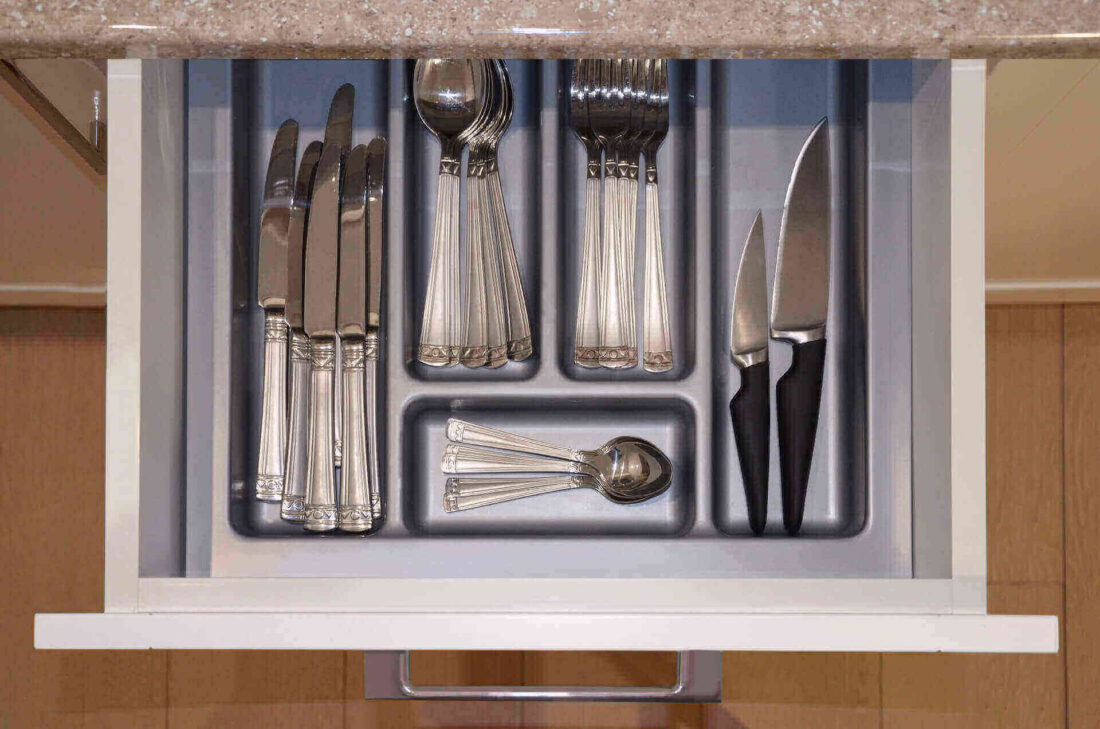

Boxing Up Silverware Without a Tray Shouldn’t Be a Problem, Either
After you’re certain that the flatware is clean and dry, it should be sorted by type and size (paring knives, diner forks, tablespoons, salad forks, and the like). Try to assemble the parts that are identical by stacking them one atop the other with the same side up. After six to eight-piece are stacked, place them in the corner of the paper, and wrap them with it. As you roll the cutlery, don’t forget to tuck in the excessive paper and once it’s completely wrapped, use tape to secure the paper.
Each category should be wrapped the same way, after which all the cutlery should be placed flat in a box. As with the previous packaging method, ensure to use a small, sturdy box and add padding materials, so cutlery doesn’t shift during the move. After you’re done, seal the box and remember to use relocation labels.
Securing Valuable Silverware Will Demand Your Full Attention
If you own sterling silverware, vintage silverware, or need to relocate an heirloom or any other priceless cutlery, take extra precautions to protect its safety throughout the move. So, how to pack stainless silverware for moving? First of all, to protect this quality tableware appropriately during a long-distance move, note that it should be cleaned, dried, and polished before the relocation.
Use white packing paper or, even better, acid-free tissue paper for each piece separately – these materials will keep the air away from silver and help avoid tarnishing. After you’re done with the wrapping process, put the wrapped silverware in a compact box with a lot of cushioning and label “HANDLE WITH CARE” on all of the box’s sides – this way, long-distance movers or you will know that the box holds valuables.
At the same time, if your fine tableware set comes with its own box or chest, you might not need to wrap each individual piece because the box or chest is likely to be padded and will have separate compartments for each one. It will keep the silver items well-cushioned and protected. Only a soft towel or piece of paper should be positioned on top of the cutlery in this situation as an additional layer of protection. After wrapping the chest with paper (or a large towel), it should also be placed in a sturdy, padded box.
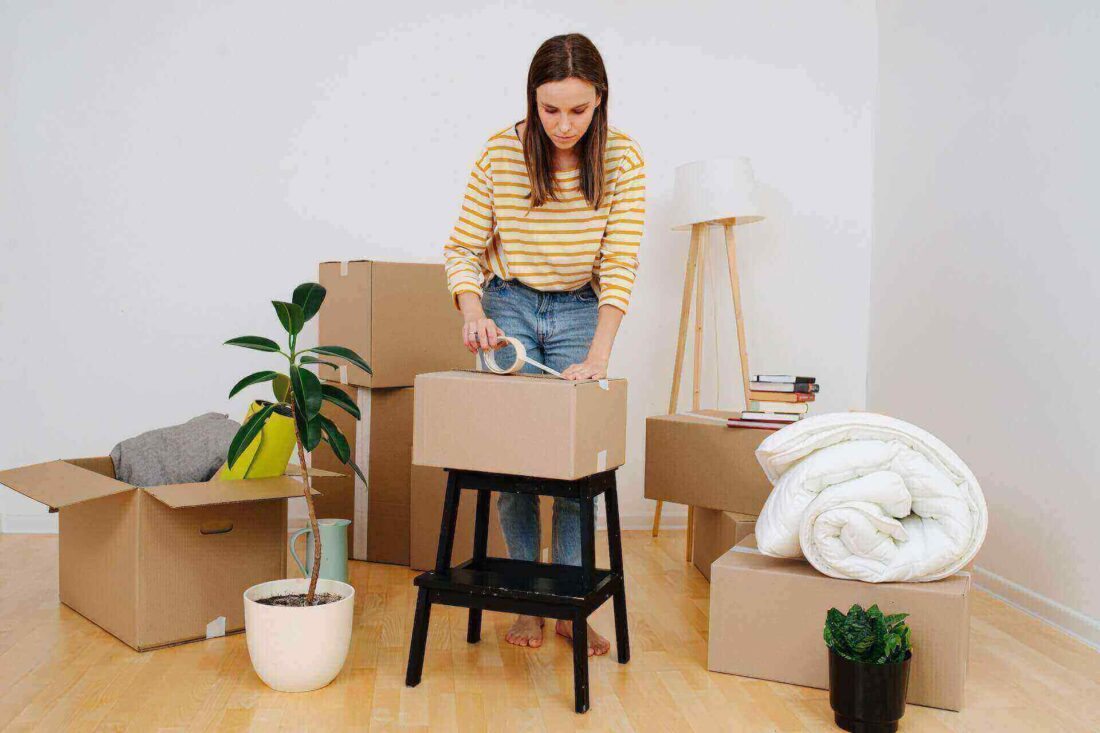

Is Packing Regular Cutlery Different From Securing Silverware?
Yes, securing silverware is different from packing regular cutlery, as the latter generally refers to stainless steel or sterling silver knives, forks, and spoons. If you’re planning a move to another city and have to pack both regular and valuable tableware, more of your attention should be devoted to higher-quality cutlery.
They demand a material that will ensure the pieces will not get scratched or damaged during the move – and using soft materials is key. While it may seem like common sense to wrap each piece of quality flatware in newspaper before boxing it up, this is actually not a good idea. The ink from the paper can rub off on your valuable flatware, so it’s best to avoid using newspaper altogether.
Packing Knives Must Be Done Carefully With Both Regular and High-Quality Cutlery
When organizing a move, handling knives as well as other sharp objects requires particular caution. If you have a cutlery block, you can store your knives as well as other sharp objects in it to prevent cuts. Use several layers of paper to roll the block, and then wrap it in bubble wrap. After the block is placed in a box, make sure you label it, so everyone knows it contains sharp objects.
If you don’t own a block, you can also pack each of the knives you own separately. Wrap each knife with paper, then add bubble wrap to avoid cuts. At the same time, make sure all the knives in a box are facing the same direction – mark it to know where the blades are when the time for unpacking comes.
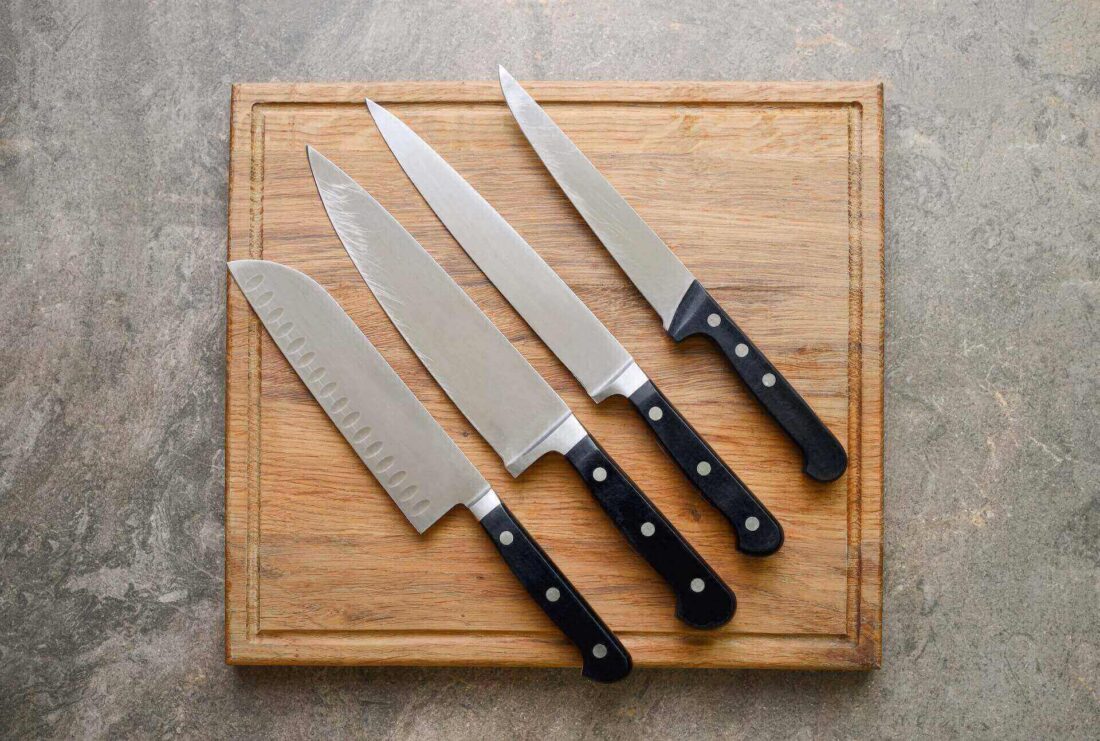

How to Handle Other Kitchen Items?
Different tableware pieces are not the only part of your kitchen utensils that need to be handled with care. You’ll also need to deal with boxing up dishes, glasses, appliances, pots, and pans – but how to do so appropriately? Here are some relocation tips you should consider:
- When packing pots and pans, arrange them according to size, and start filling the largest with smaller pots. Separate each pot with paper, wrap them together, and place the set inside the box upside down.
- Bubble wrap and paper are the finest materials to use when packing glasses, but you must first ensure to separate them by category. On the other hand, when it comes to boxes, it would be best if you get specially designed boxes for transporting glassware, such as dish barrels.
- When it comes to boxing up plates, bowls, and other similar dishes, they can be packed in bundles. However, you need to remember to always place them in the box vertically.
- Keep in mind that multiple appliances shouldn’t be packed in a single big box. At the same time, remember that paper or bubble wrap can also be used to wrap and separate appliances before placing them into boxes.
As you are probably well aware, your kitchen contains a number of items that you’ll have to pack. Make sure you follow the instructions precisely in order to prevent things from breaking.
On the other hand, if you think you don’t have enough knowledge to pack your kitchen items or deem it would take too much of your time, you can always choose to get long-distance moving services and let professionals deal with your delicate belongings.
Packing Service
Sit back and relax, we’ve got packing services covered. We use moving blankets, shrink wrap, bubble wrap and even custom wooden crating. Your stuff will be protected and carefully handled during the move.
Learn moreAuto Transport
Move your car across the country in an open or enclosed trailer – for an affordable fee. We offer car transport as a standalone service, but you can bundle it with your household move and get a hefty discount.
Learn moreStorage Services
Our spacious climate-controlled units will protect your things until the drop-off. No need to worry about them because all items are labeled and secure, and each customer gets a dedicated unit mixup isn’t possible.
Learn moreGet Help From a Long-Distance Moving Company and Free Up Your Time for Other Relocation Tasks
Due to the many challenges every long-distance move brings, many decide that the best solution is to get help from relocation experts – and they are not wrong. Getting reliable cross-country moving services means all your belongings, including tableware, will be handled with care and arrive at your new home safely. Hiring movers means you’ll get professional help with many aspects of your move, from packing and transportation to storage and car shipping – so make sure you use it.


